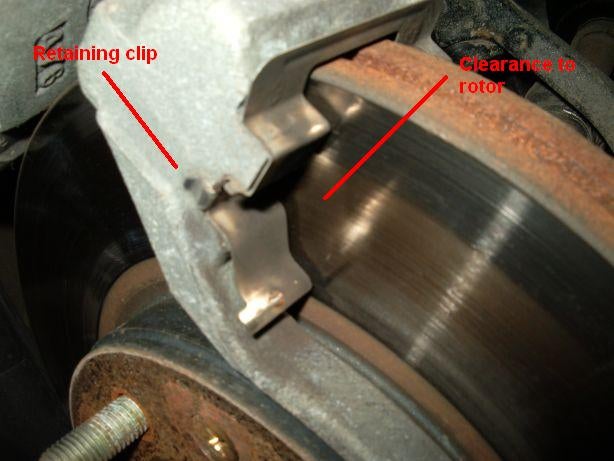Why Are My Brakes Squeaking While Driving

Ah, the dreaded brake squeal. That high-pitched screech that turns heads and makes you question your last preventative maintenance check. It's a common automotive complaint, but the why behind the squeak can vary wildly depending on your ride. Let's dive deep into the potential causes and how they might differ across various vehicles.
Decoding the Squeal: Model and Engine Matters
The sound of squealing brakes is essentially vibration. Something is resonating, and that resonance manifests as an ear-piercing shriek. But the source of that vibration changes depending on your vehicle. For example:
- Economy Cars (e.g., Honda Civic, Toyota Corolla): Often use organic or semi-metallic brake pads. These pads are cheaper but tend to produce more brake dust and are more prone to squealing, especially in humid conditions.
- Performance Cars (e.g., BMW M3, Porsche 911): Frequently equipped with high-performance brake pads, like ceramic or carbon-ceramic. These pads offer superior stopping power but can be quite noisy when cold. Think of it as their way of warming up!
- Trucks & SUVs (e.g., Ford F-150, Chevy Tahoe): Typically rely on larger, heavier rotors and more robust brake calipers. The squeal here might indicate uneven wear, a sticking caliper piston, or glazing on the pads.
The engine can also indirectly influence brake squeal. A more powerful engine necessitates more aggressive braking, leading to increased heat and wear on the brake components. This, in turn, can increase the likelihood of squeaking.
Brake Pad Composition: A Spec Table Breakdown
| Brake Pad Material | Pros | Cons | Typical Vehicle Application |
|---|---|---|---|
| Organic | Quiet, Inexpensive | Short lifespan, Poor performance in extreme conditions, High dust | Economy cars, Daily drivers |
| Semi-Metallic | Good stopping power, Durable | Noisier than organic, More abrasive on rotors, Moderate dust | Most cars, Trucks |
| Ceramic | Low dust, Quiet, Good stopping power | More expensive than organic/semi-metallic | Performance cars, Luxury vehicles |
| Carbon-Ceramic | Exceptional stopping power, Fade resistant, Very low dust | Very expensive, Noisy when cold, Requires specific rotors | High-performance cars, Track use |
Technology's Role: ABS and Electronic Parking Brakes
Anti-lock Braking Systems (ABS) and Electronic Parking Brakes (EPB) can also contribute to or mask brake squeal. ABS, especially during activation, can cause vibrations that might be mistaken for a squeak. EPBs, which are becoming increasingly common, can sometimes cause the rear brakes to drag slightly, leading to heat buildup and, you guessed it, squealing.
Real-World Driving Impressions: The Sound of Silence (or Not)
Let's break down how these factors play out in real-world driving scenarios:
- City Driving: Stop-and-go traffic is a recipe for brake squeal. Constant braking generates heat, and the frequent stops don't allow the brakes to cool down properly. This is particularly noticeable with semi-metallic pads in economy cars. You might notice a high-pitched chirp during light braking.
- Highway Cruising: Extended periods of highway driving can actually help to *burn off* any surface rust or contaminants on the rotors, potentially reducing squealing. However, a sudden hard stop after a long cruise can sometimes induce a momentary squeal due to the rapid temperature change.
- Track Days: High-performance brakes are designed for extreme heat. While they might squeal when cold, they typically perform flawlessly under track conditions. The squealing often diminishes as the brakes reach their optimal operating temperature. Expect a more of a low-frequency groan initially.
Potential Culprits: Beyond the Pads
While the brake pads themselves are often the main suspect, other factors can contribute to the symphony of squeals:
- Rotor Condition: Warped or scored rotors can cause uneven pad contact, leading to vibration and noise.
- Caliper Issues: A sticking caliper piston can cause the brake pad to drag against the rotor, generating heat and noise.
- Hardware Problems: Worn or missing shims, clips, or springs can allow the brake pads to vibrate excessively.
- Contamination: Brake dust, road grime, or even moisture can get trapped between the pad and rotor, causing noise.
The Fix: What Can You Do?
Addressing brake squeal often involves a multi-pronged approach:
- Inspection: Thoroughly inspect the brake pads, rotors, calipers, and hardware for any signs of wear or damage.
- Cleaning: Clean the brake components with a brake cleaner to remove any dirt or debris.
- Lubrication: Apply brake lubricant to the appropriate areas (e.g., caliper slide pins, pad backing plates) to prevent sticking and reduce vibration.
- Replacement: Replace worn or damaged brake pads, rotors, or hardware. Consider upgrading to a different pad material if the squealing is a persistent problem.
- Professional Help: If you're not comfortable working on brakes, consult a qualified mechanic.
Ultimately, brake squeal is a common problem, but understanding the underlying causes and how they relate to your specific vehicle is crucial for finding the right solution. Don't ignore the squeak! It's your car's way of telling you something needs attention.
Fun Fact: Did you know some manufacturers actually design a slight squeal into their brake pads to alert drivers when the pads are nearing the end of their life? Is this genius or just plain annoying? Let the debate begin!
